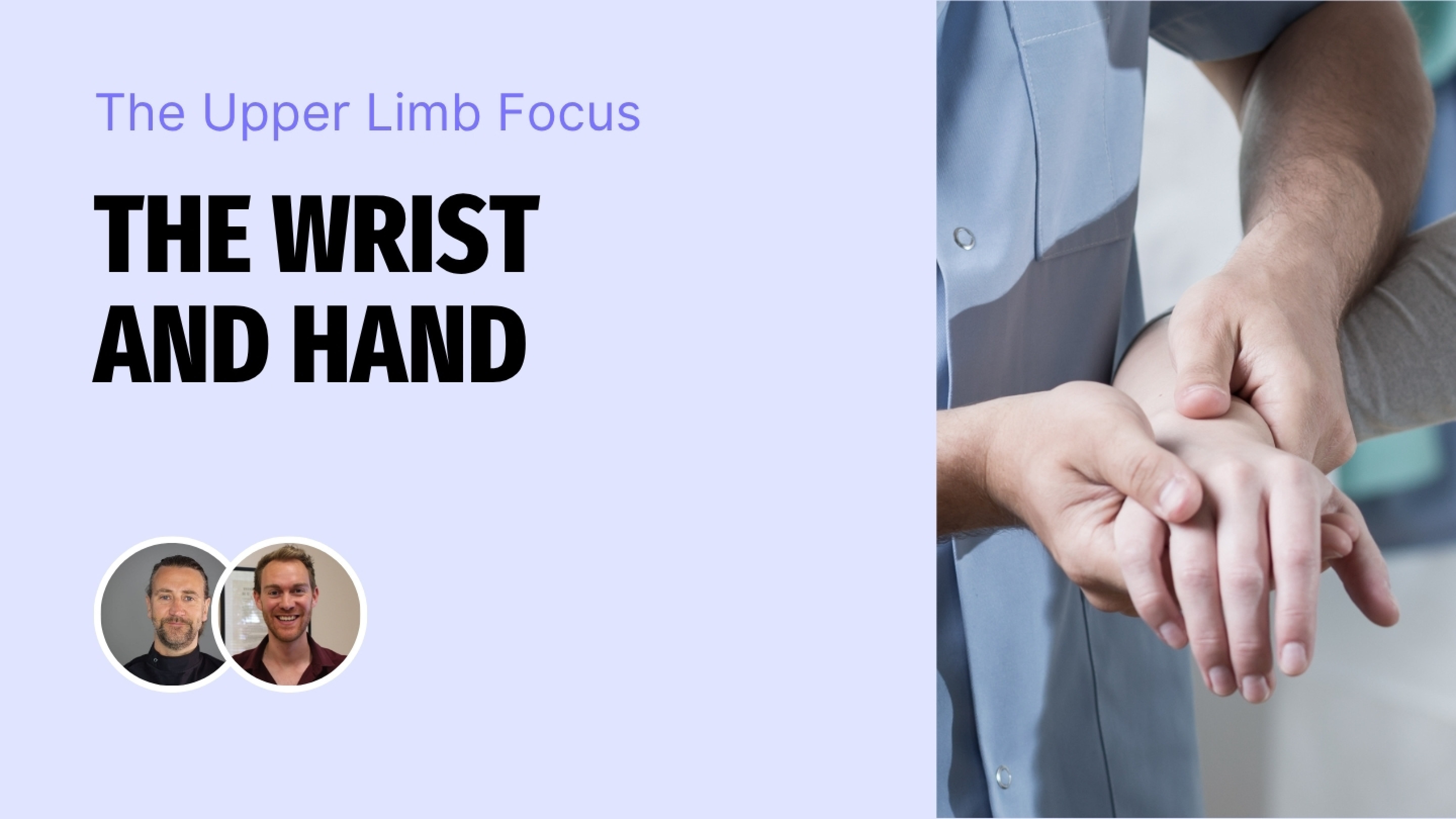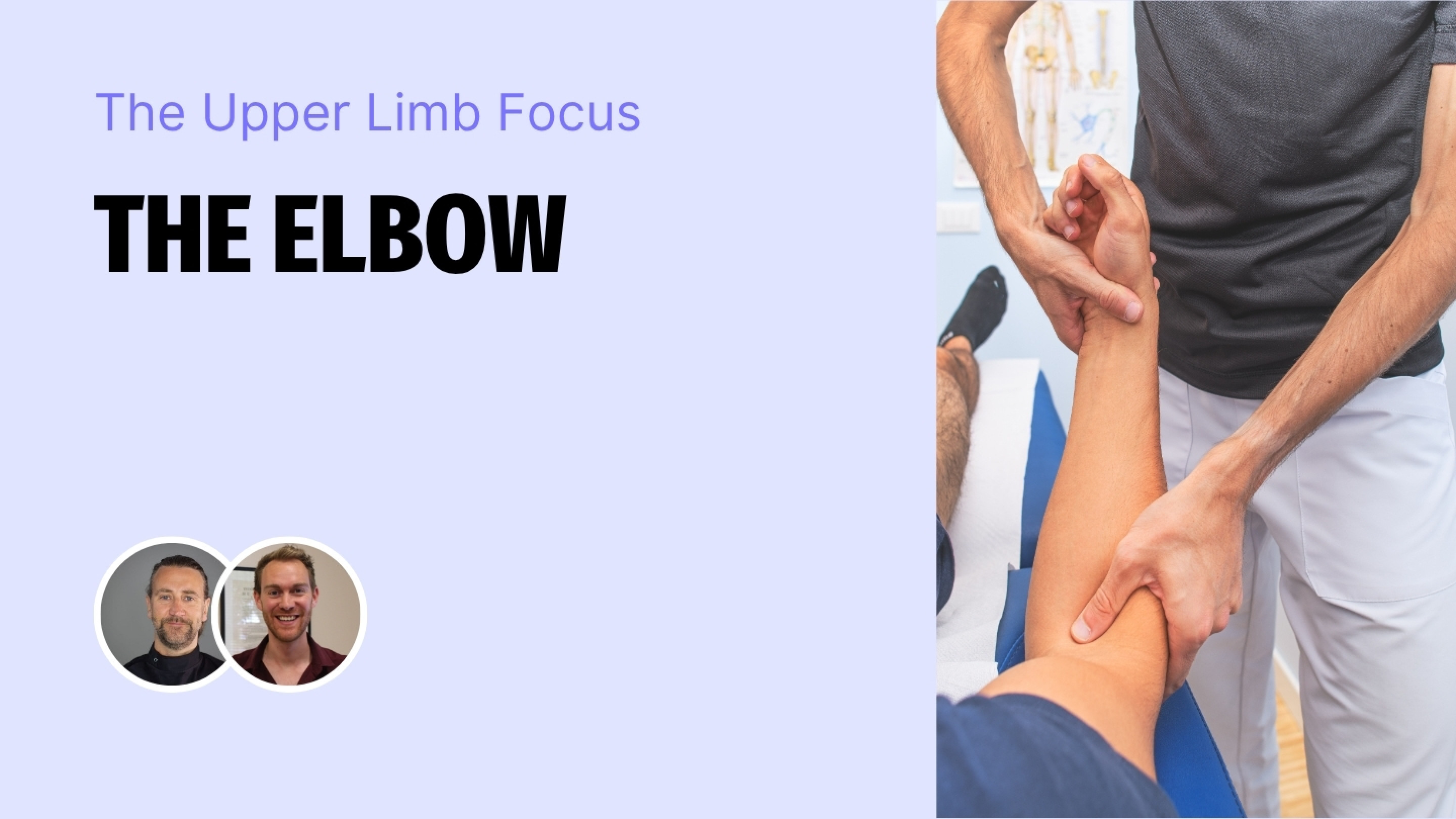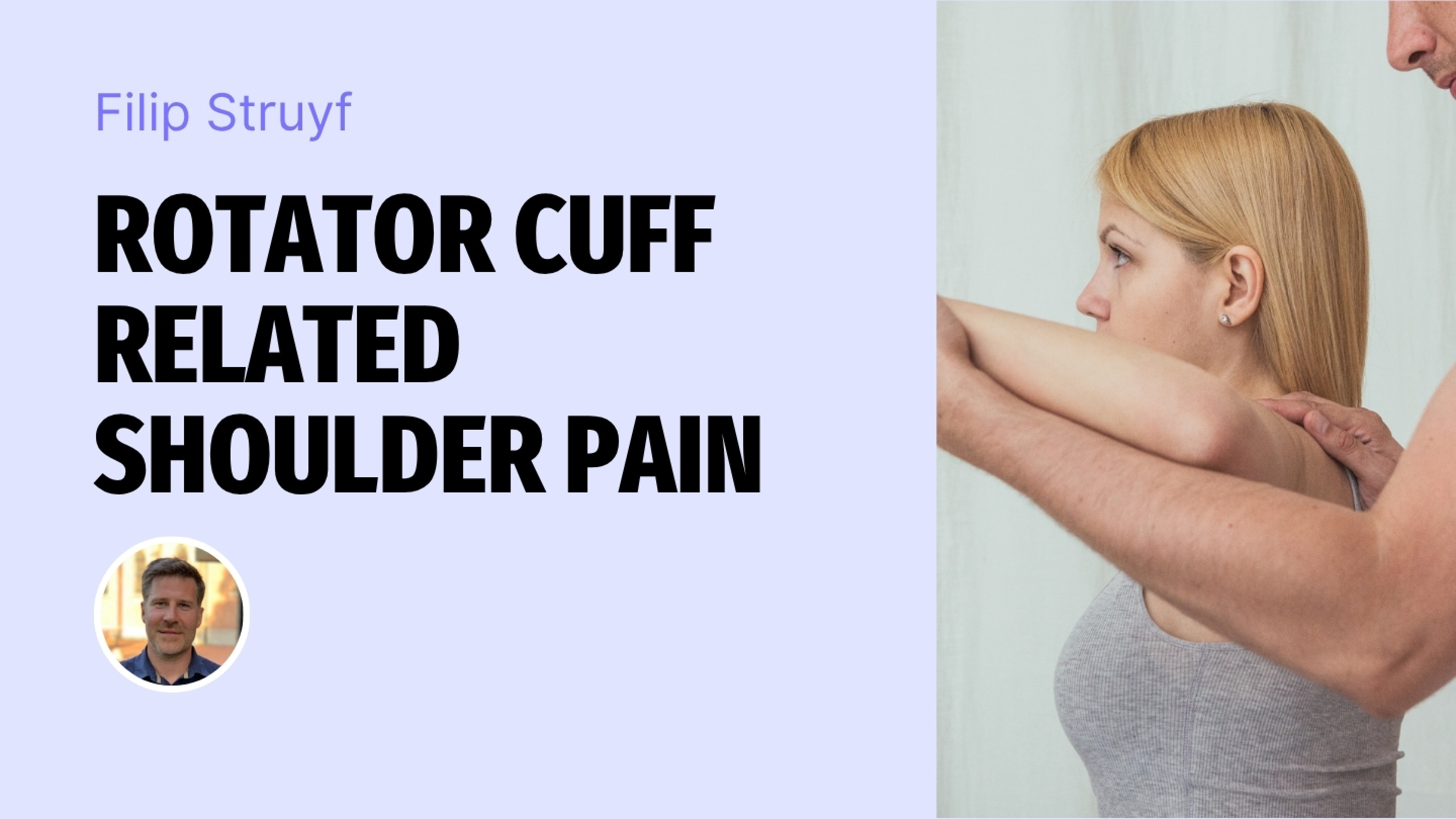The Upper Limb Focus: The Stiff Shoulder
Order multiple courses
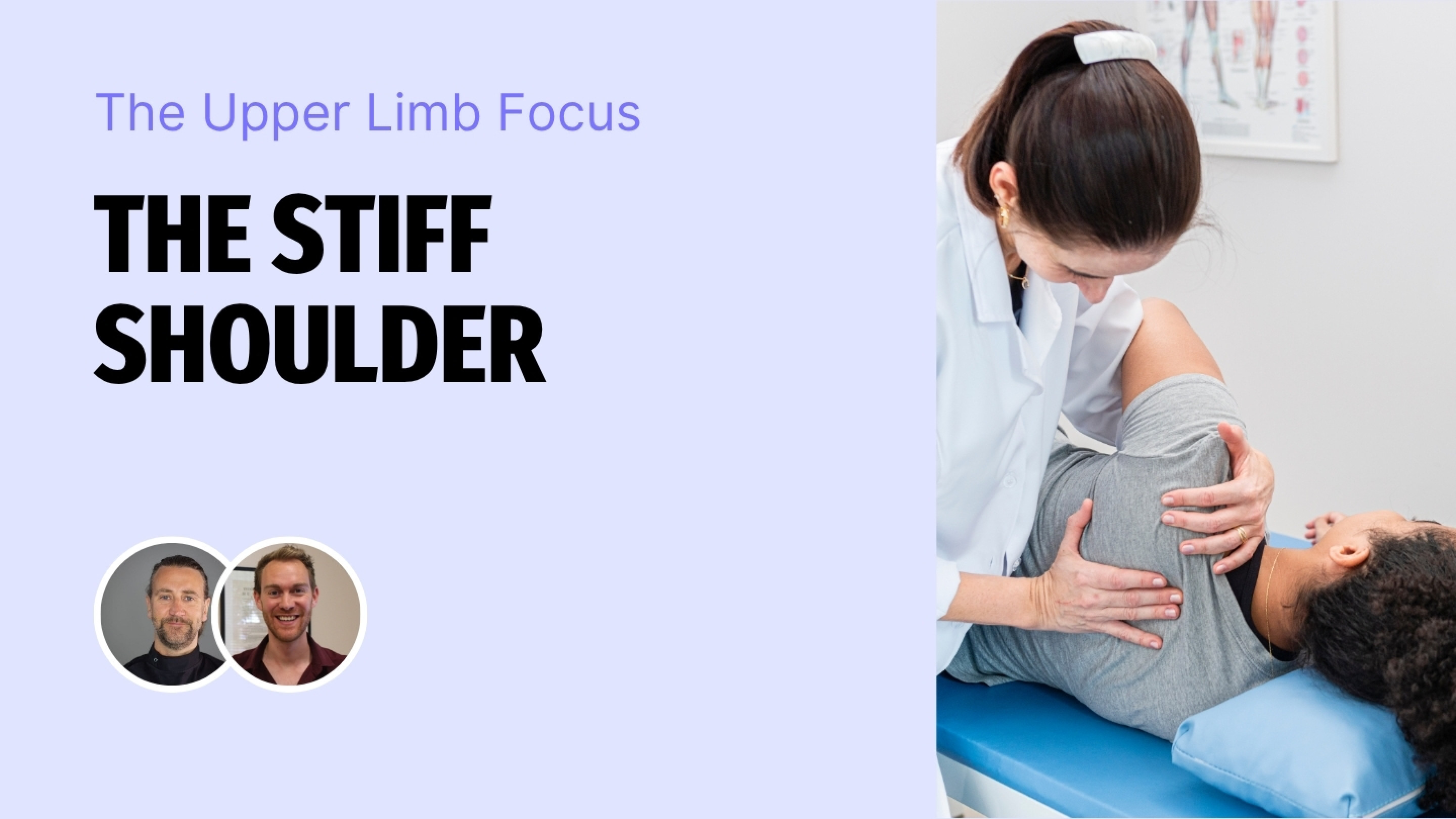
The Complete Stiff Shoulder Focus: Elevate Your Expertise in Treating Shoulder Stiffness and Frozen Shoulder
Are you ready to enhance your ability to assess and treat common shoulder stiffness conditions? This course is designed for physiotherapists and healthcare professionals seeking to deepen their knowledge and practical skills in the diagnosis, management, and rehabilitation of stiff shoulder conditions, including frozen shoulder (adhesive capsulitis) and post-surgical shoulder stiffness. Whether you’re just starting your career or looking to refine your clinical expertise, this course will provide you with a comprehensive, evidence-based approach to stiff shoulder rehabilitation.
Course Overview
This course takes an in-depth look at stiff shoulder conditions, from primary and secondary adhesive capsulitis to post-traumatic stiffness. You’ll develop a structured approach to assessment and treatment, gaining the confidence to address a wide range of shoulder mobility restrictions, including post-surgical stiffness, frozen shoulder, and rotator cuff-related stiffness.
What You Will Learn
Comprehensive Understanding of Shoulder Anatomy and Biomechanics: Build a solid foundation in the anatomy and biomechanics of the shoulder joint and its surrounding structures. Understanding these elements is key to accurately assessing dysfunction and developing effective treatment strategies for restricted mobility.
Diagnosis and Clinical Reasoning: Learn to perform thorough assessments and differential diagnoses of stiff shoulder conditions using evidence-based special tests and examination techniques. You will refine your clinical reasoning, allowing you to provide accurate diagnoses and personalized treatment plans.
Rehabilitation for Shoulder Stiffness: Implement targeted rehabilitation for stiff shoulder conditions. You’ll learn how to progress patients through each stage of rehabilitation, from the freezing phase to full recovery, ensuring optimal mobility restoration and pain reduction.
Hands-On Techniques for Effective Treatment: Master manual therapy techniques and therapeutic exercises specifically tailored for the stiff shoulder. These hands-on methods will help you restore function, improve range of motion, and reduce pain in your patients.
Evidence-Based Approach
This course is grounded in the latest research, ensuring that all assessment and treatment strategies are supported by current evidence. You’ll stay up-to-date on the best practices for managing stiff shoulder conditions, giving you the confidence to apply these techniques in your clinical practice.
Interactive Learning and Practical Application
Video Demonstrations and Quizzes: Watch high-quality video tutorials demonstrating key assessment techniques, manual therapies, and therapeutic exercises for the stiff shoulder. Test your understanding with interactive quizzes designed to reinforce your learning.
Case Studies and Real-World Scenarios: Apply your knowledge to practical case studies that reflect real-world patient presentations. These exercises will enhance your clinical decision-making and help you develop effective treatment strategies for a variety of stiff shoulder conditions.
Why This Course Stands Out
Expert Instruction: Learn from experienced physiotherapists who specialize in shoulder rehabilitation. Their expertise and insights will guide you in mastering the assessment and treatment techniques necessary to excel in treating stiff shoulder conditions.
Comprehensive, Structured Approach: This course offers a well-rounded education on stiff shoulder rehabilitation, ensuring that you develop a comprehensive understanding of both the theoretical and practical aspects of treatment. You’ll finish the course with a structured approach to diagnosing and managing restricted shoulder mobility.
Actionable, Evidence-Based Techniques: This course focuses on providing you with practical skills that you can immediately implement in your clinic. Each technique and protocol is backed by the latest research, ensuring that you provide the best care possible for your patients.
Outcome
By the end of the course, you will be fully equipped with the knowledge, skills, and confidence to assess, diagnose, and treat a wide range of stiff shoulder conditions. You’ll be able to apply evidence-based rehabilitation techniques that improve patient outcomes and help your patients regain full shoulder function and mobility.
Related courses
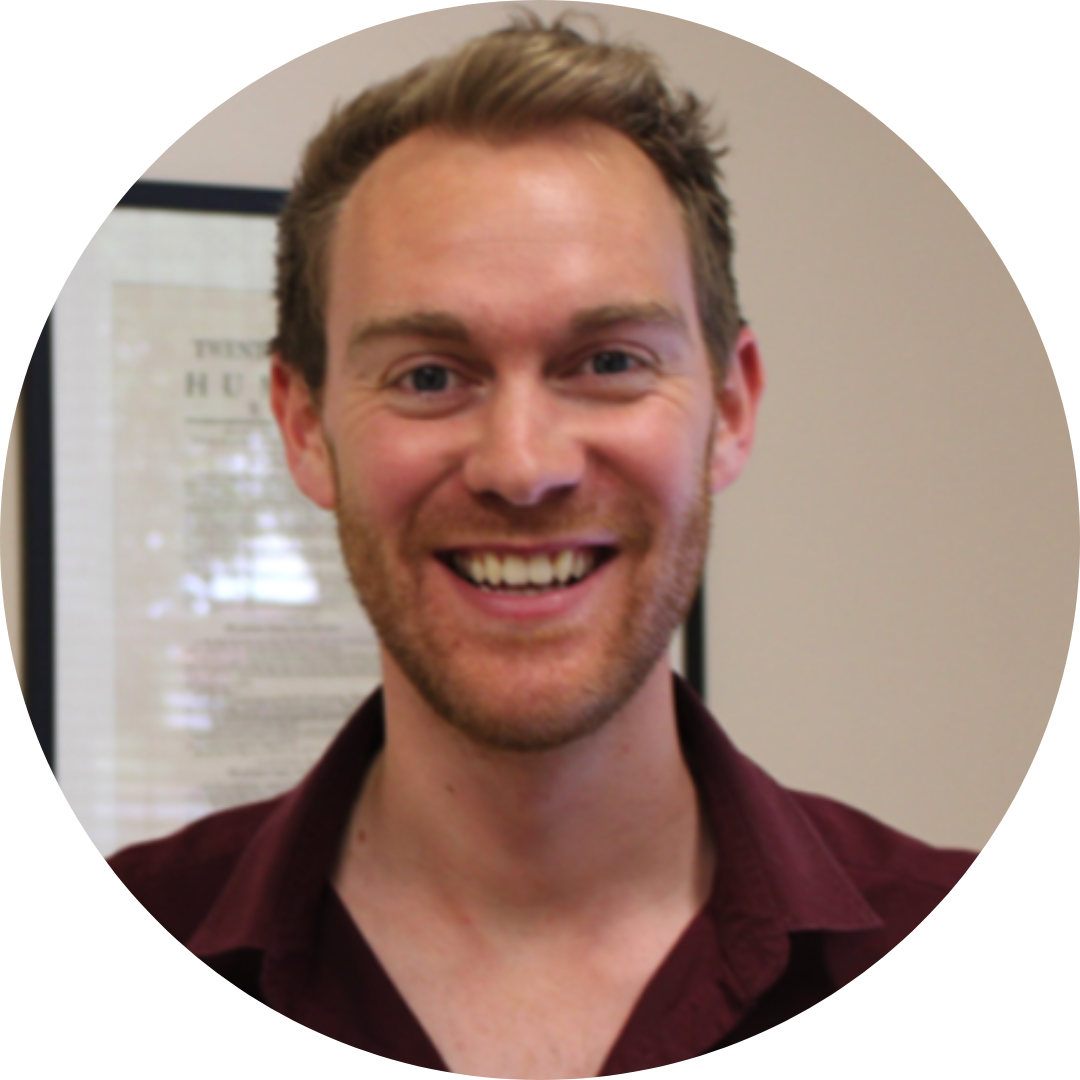
Andrew Cuff
Upper Limb Expert
I’m a Chartered Physiotherapist working at a Consultant level who specialises in the assessment and treatment of Musculoskeletal conditions with a specialist interest in the Shoulder, Elbow & Red Flags. An experienced clinical and operational leader with proven track record in delivering expert clinical practice; assuring high-quality care; impactful research publication; and innovation.
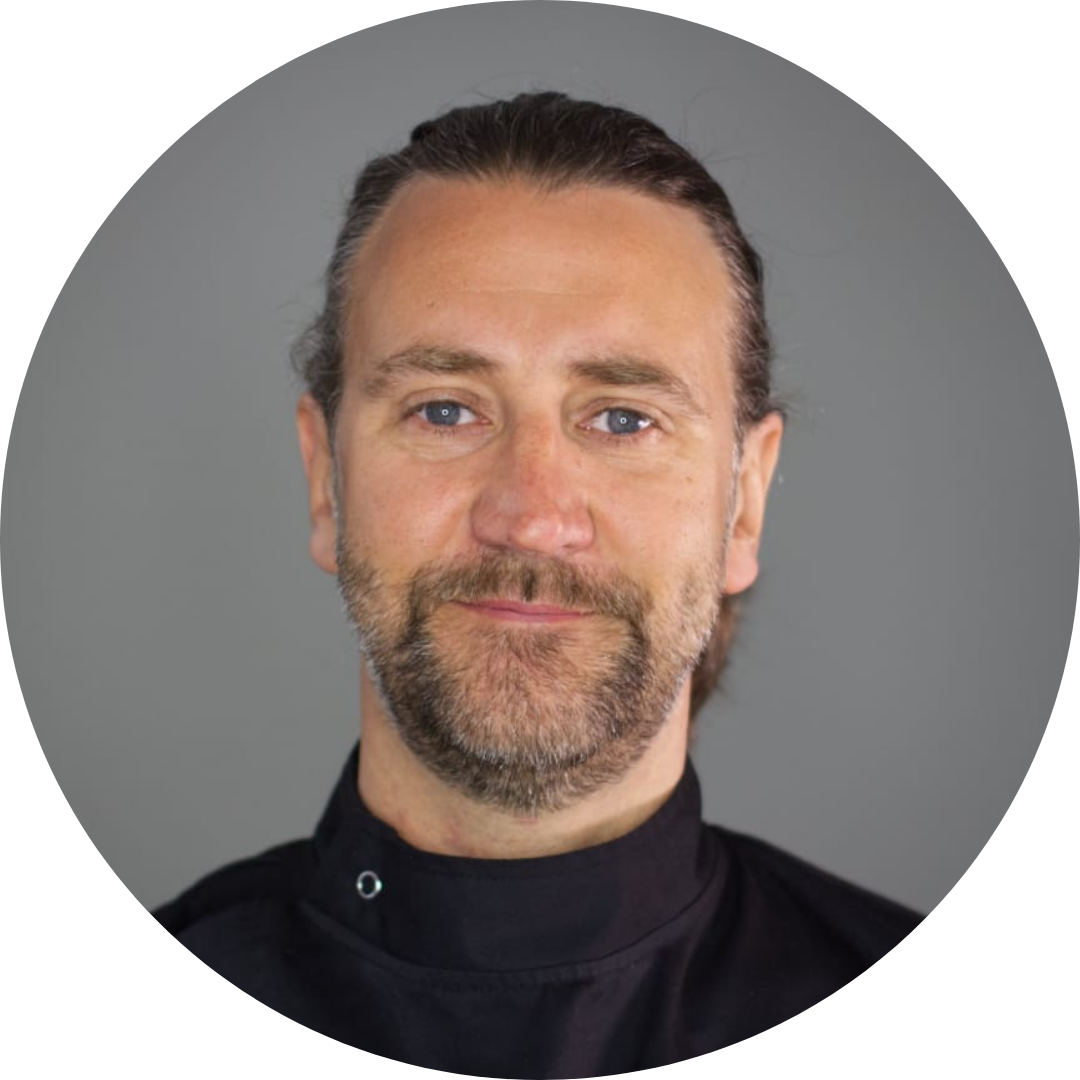
Thomas Mitchell
Upper Limb Expert
Thomas is a wrist and hand specialist physiotherapist, and working toward his PhD at Sheffield Hallam. He is a physiotherapist of 25 years standing in primary care, private practice and sports. He is a First-contact Practitioner clinical supervisor and member of the British Association of Hand Therapists. He is also a Member of the Mulligan Concept Teachers Association.
3.5
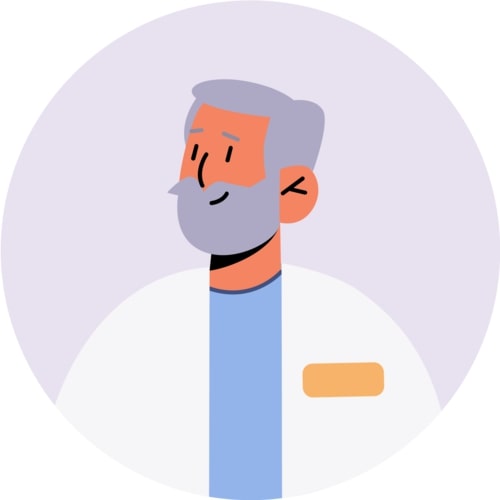
A solid shoulder course but a little more meat on the bone needed
This was a decent course. I like how the info was laid out and delivered by Andrew and Thomas. I think there was perhaps more scope to explore the Pseudo shoulder but perhaps they were not wanting to step on the toes of other courses here. I think also a section on impingement in relation to stiff shoulder would have been good. The first half of the course was a little too heavily weighted towards Pyschosocial issues for my taste but i understand that it is an important area to be aware of and an area that we can potentially have a positive impact upon. Overall i am happy i took the course. It was a nice practise for my clinical reasoning and to see that my approach is generally not to far away from others. I think it would be nice to get a Mulligan course on physiotutors - Thomas? Also i love that Andrew is a shoulder specialist and his surname is Cuff :)
Simon Fayers |

Goede cursus om thuis op eigen tempo te bekijken!
Dit is de 2de cursus die ik volg via physiotutors en net als de vorige cursus vond ik ook deze zeer leerrijk. Je krijgt dankzij deze cursus nieuwe inzichten in de behandeling van een stijve schouder. Er worden behandeltechnieken (o.a. mobilization with movement) getoond via video's. Het leuke is ook dat je de cursus op je eigen tempo thuis kan volgen en na het afronden van de cursus kan je er nog steeds naar terug grijpen. Ik kijk ernaar uit om nog andere cursussen van physiotutors te ontdekken en raadt het ook anderen ten zeerste aan!
Lieselot Longé |
Curriculum
Accreditation
Below are details on accreditation for this course. The course contents have been validated by official accreditation bodies worldwide. For all other regions, participants will receive a CPD certificate with details on the duration of the course.
No questions have been asked yet. Be the first to start the conversation and ask your question about this course.
